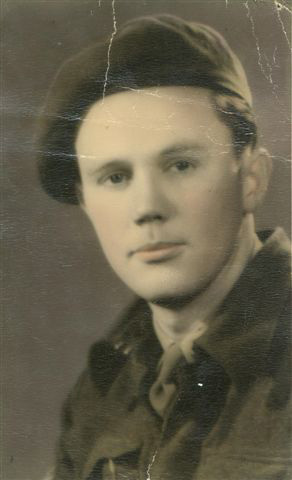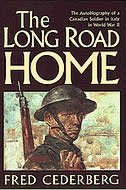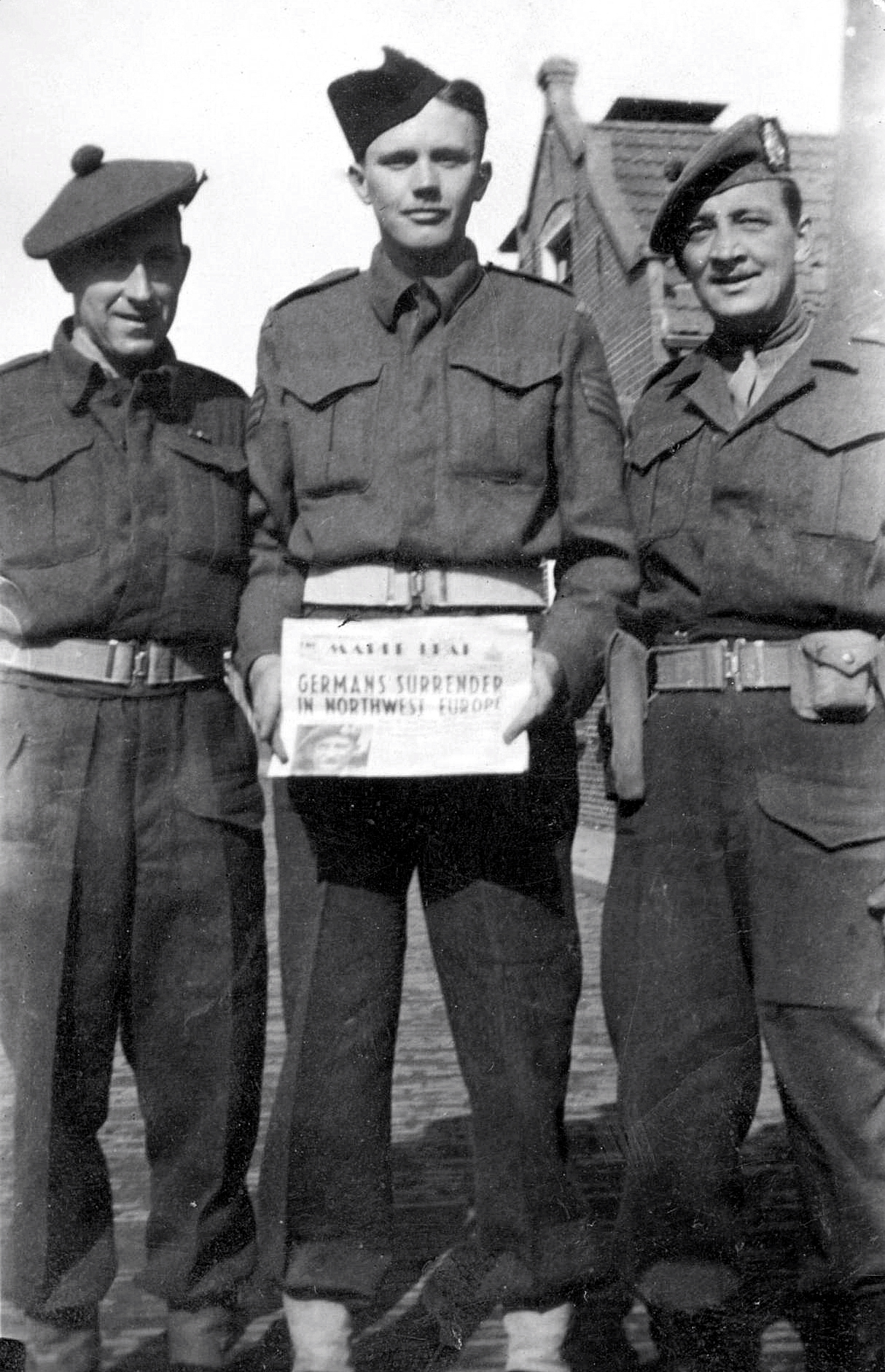Fred Cederberg

John Alec Frederick Cederberg was born on the island of Cape Breton, Nova Scotia on June 5th, 1923. His father Hugo, an immigrant from Sweden and his mother Sarah McNeil, a native of the island started a family immediately. He was the second oldest of 5 children (4 boys and 1 girl) and when he was just a toddler, the family moved to Toronto, Ontario where his father was able to find work as a structural engineer. Fred grew up in Toronto and was only 16 when World War II started. His uncle, the colonel of the Cape Breton Highlanders drove to Toronto to pick up his nephew and that is how Fred started his 6 year career with the Canadian Army. His army experiences brought him to Italy and it was during 1944, with the regiment at rest for Christmas that he received 2 parcels from home. One parcel caught him by surprise. It contained paint boxes, colouring books, tinker toys, bundles of lollipops, Raggedy Ann dolls, red mesh Christmas stockings and a wooden duck on wheels that quacked when pulled across the floor. Accompanying these toys was a note from his mother, “These, my darling son, are for some Italian children who, if everything I read in the papers is correct, won’t have much of a Christmas. Do find a family and be a Santa Claus for a few minutes!”
He found himself in downtown Ravenna where he found a single mother with 3 small shy children and indeed played Santa Claus, evidenced by the squeals of delight of the children! The war took Fred from Italy to Europe and when it was over in 1945 he was finally sent home to his family. He finished high school and attended Queens University in Kingston, Ontario, majoring in Journalism. He worked for a major newspaper in Toronto and as a Rememberance Day assignment was sent back to Italy in 1960. He was to retrace the route of the Canadian Army during WWII and report back with a series of articles. It was likely during this trip that he decided he should put ‘pen to paper’ and write a book about his own wartime experiences. Unfortunately, it was during these turbulent 60’s that nobody wanted to publish or read another book about WWII, so his manuscript sat in a box in his basement for another 20 years.
He changed careers in 1970’s, joined the Provincial Government and wrote speeches for the Minister of Transportation. He never gave up the idea of having his book published and in 1984, General Publishers took a chance on Fred as a ‘first time author’ and much to everyone’s surprise, his first book was a best seller! He spent almost 6 months touring the country with his wife Mary, and talking about his book, “The Long Road Home”.
Fred retired to the family cottage in northern Ontario when he was 60 where he lived out his remaining years, passing away in March 1999. He is survived by his wife Mary, his 5 children (Kirk, Gord, Mike, Hal and Mary-Katherine) along with 10 grandchildren.
THE LONG ROAD HOME
Drawn from different backgrouds and different parts of the country, three young Canadians went to war overseas together with little in common apart from their nationality and their mix of excitement and trepidation. But during training and on the front, they formed a close friendship that was to pull them through their darkest hours — and The Long Road Home is their story. Based on the true experiences of late author Fred Cederberg, this book is a Canadian classic, telling the story of a young Cape Bretoner sent to do battle against the Axis powers in distant Italy.

Here is the infantryman’s story — the coal miner from Cape Breton, the fisherman from the west coast, the hayshaker from the prairies — as told through the eyes of Sergeant Fred Cederberg of the Cape Breton Highlanders and Lanark and Renfrew Scottish. This is the story of the soldiers’ training, their army home away from home in England, that landing in Naples, and the epic struggle against the crack troops of the German 10th Army in mountainous central Italy.
from: www.mapleleafup.org


